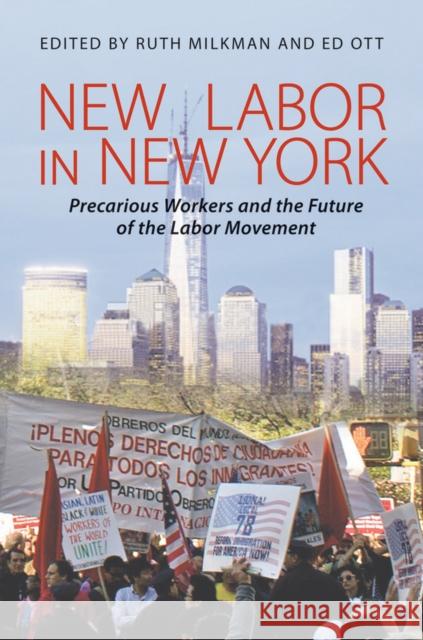New Labor in New York » książka
New Labor in New York
ISBN-13: 9780801452833 / Angielski / Twarda / 2014 / 368 str.
New York City boasts a higher rate of unionization than any other major U.S. city roughly double the national average but the city's unions have suffered steady and relentless decline, especially in the private sector. With higher levels of income inequality than any other large city in the nation, New York today is home to a large and growing "precariat": workers with little or no employment security who are often excluded from the basic legal protections that unions struggled for and won in the twentieth century.Community-based organizations and worker centers have developed the most promising approach to organizing the new precariat and to addressing the crisis facing the labor movement. Home to some of the nation's very first worker centers, New York City today has the single largest concentration of these organizations in the United States, yet until now no one has documented their efforts.New Labor in New York includes thirteen fine-grained case studies of recent campaigns by worker centers and unions, each of which is based on original research and participant observation. Some of the campaigns documented here involve taxi drivers, street vendors, and domestic workers, as well as middle-strata freelancers, all of whom are excluded from basic employment laws. Other cases focus on supermarket, retail, and restaurant workers, who are nominally covered by such laws but who often experience wage theft and other legal violations; still other campaigns are not restricted to a single occupation or industry. This book offers a richly detailed portrait of the new labor movement in New York City, as well as several recent efforts to expand that movement from the local to the national scale.Contributors: Benjamin Becker, CUNY Graduate Center; Marnie Brady, CUNY Graduate Center; Jeffrey D. Broxmeyer; CUNY Graduate Center; Kathleen Dunn; Loyola University; United Food and Commercial Workers Local 2013; Harmony Goldberg; CUNY Graduate Center; Peter Ikeler, SUNY College at Old Westbury; Martha W. King, CUNY Graduate Center; Jane McAlevey, CUNY Graduate Center; CUNY Graduate Center; Susan McQuade, CUNY Graduate Center and New York Committee for Occupational Safety and Health; Erin Michaels, CUNY Graduate Center; Ruth Milkman, CUNY Graduate Center and Joseph S. Murphy Institute for Worker Education and Labor Studies, CUNY School of Professional Studies; Ed Ott, Murphy Institute, CUNY School of Professional Studies; Ben Shapiro, New York Communities for Change; Lynne Turner, Murphy Institute, CUNY School of Professional Studies."











